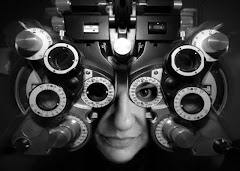MY SECOND DAY IN BED WITH KEITH RICHARDS
Thursday, December 30, 2010
Going for a rock n’ roll spin on the common virus, I decided to deal with almost-post-illness fatigue today by finishing up Keith Richards’ autobiography that I started yesterday. Read, nap; nap, read; shower, nap, read, eat something, write up what I thought about Life.
First off, a standing ovation to James Fox, the writer who had the tenacity and talent to take hours of taped interviews he did for this book with Richards over a period of five years into a very readable and entertaining overview of the Rolling Stone’s life. The style of the writing remains solidly true to Richards’ cadence and personality, not diluted at all by the necessary organization and added clarifying details. It easily could have been a book filled with one “war hero” story after another, focusing too much on the prurient, violent, or vague memory. Instead the timeline of Richards’ life flows well, the stories are pinned down by places and dates and inset commentary from others who were also there. It helps to sort out some of the material that keeps coming up, like all those pesky hotel/home fires and drug busts.
You might find it unexpected that the most interesting parts of the book occur before and after Richards’ very long struggle with hard drugs. I know there are readers out there who will be looking for the dirt and misery that arose from Richards’ legendary addiction years, and there’s plenty of it. But unless you are another junkie, junkie stories get old fast. For years, the real focus of his life was not music, money, friends, family – it was how to score the next fix and the glorious, meticulous routines that go along with any kind of habit. Richards’ still speaks of those days in incredible detail, the passion and longing for the purest, greatest high still there, although he has been off hard drugs for many years now. He repeatedly says he would never, ever recommend heroin to anyone and I believe he is sincere…but the reverent tone he has in discussing the merits of pharmaceutical-grade, top-shelf drugs unfortunately could lead someone to think otherwise. There is quite a list as the story goes along of Richards’ friends who don’t survive, much less end up thriving as he did. They stack up, quietly.
And those aren’t the saddest figures in the book, because in the end junkies off themselves by their poor choices. The ones you feel for are Richards’ three children by model/actress/scenester/fellow addict Anita Pallenberg, subjected to what was a pretty appalling lifestyle. After son Tara died of SIDS at two months of age, daughter Angela was given up to Keith’s mother Doris to raise permanently, but oldest son Marlon was retained, shuttled from decrepit place to decrepit place. It makes the reader cringe to read Richards’ recount of having the 7-year-old boy with him on tour, surrounded by drugs and syringes, handguns, junkies, freaks, gangsters, you name it, responsible for “waking Dad up” to go onstage. Later, the child witnesses the suicide of his mother’s 17-year-old lover by Russian roulette. These are the hardest things to take in the book, and one wishes Richards’ would have been able to own up to it more here. Marlon and Angela Richards seem to have a good adult relationship with their parents, with Marlon contributing to his father’s book. Keith’s two other children with his wife Patti Hansen, Theodora and Alexandra, were brought up with far less drama.
There’s been much press surrounding his many less-than-flattering comments towards Mick Jagger in the book, but for any Stones fan, well, it’s old news, that. They’ve been at each other for a long time now, and the pokes that Richards makes towards his bandmate seem to arise primarily from the hurt that he lost his closest friend to fame-fueled narcissism. I imagine, if asked and answered honestly, Jagger has the same feeling of loss and betrayal about Richards, his trust destroyed over and over by the fallout from Richards’ drug use. But what might be kind of worse? The almost-complete indifference Richards shows towards former Stones bassist Bill Wyman. He is barely mentioned at all.
In the end, what really makes the book isn’t the sad or dramatic or the pissy jabs: it is the unabashed love and enthusiasm Richards’ has for music, for a sound that sets him on fire. It is fascinating to read about his early years in post-War Britain, a poor boy saved by rock n’ roll indeed, an only child with a large and quirky extended family. Once he got his hands on a guitar and Chuck Berry records, he was gone, daddy, gone. You can feel his drive and excitement to learn how a particular guitar sound is made, how that one Everly Brothers lick went, and it remains just as strong in him today, which is terribly endearing. Richards’ is also funny and bright; a reader and observer of the world, interested in so many things. He is tough, but not jaded nor bitter; kind-hearted enough to rescue mangy cats and dogs from Russia and Jamaica and bring them home for good. He’s a pirate, but includes his own recipe for bangers n’ mash in the book. Ya gotta love the guy, really. He’s one-of-a-kind.





